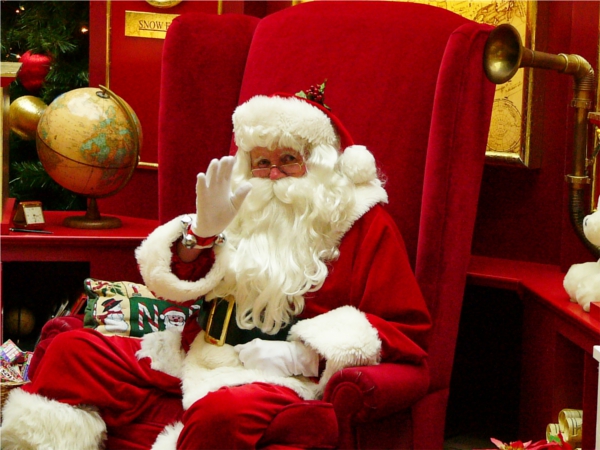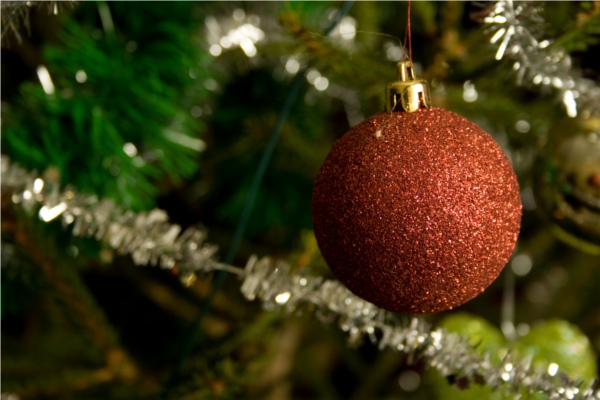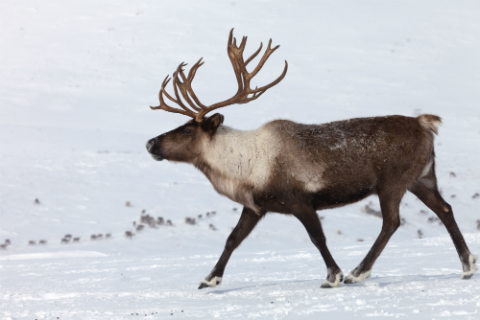Improve your English: Christmas vocabulary
Sometimes when you learn a new language, a lot of the focus is on the rules and the grammar. Although this is important, it is also important to have a wide vocabulary, so you can accurately express yourself and say what you really want.
With the 2015 Christmas season in full swing, let’s learn some Christmas vocabulary that you can use over the coming weeks, whether you're in the UK, the US, Australia, or the world over!
Father Christmas and Santa Claus
Although they actually have separate origins, Father Christmas and Santa Claus are now used as different names for the same person. You know him well, of course: a big happy man with a long white beard, a red suit, and some reindeer. In the UK, we call him Father Christmas. In the US, we call him Santa Claus. You might also hear him called Saint Nicholas, or Old Saint Nick, or else Kris Kringle – he has a lot of names!

Jolly
Father Christmas is often described as jolly. Jolly is an adjective meaning happy and cheerful, and can be used all year round. However, it is most commonly used at Christmas time.
Example: “Are you dressing up for the Christmas party? You would be a very jolly Santa.”
There is a famous Christmas carol called Deck the Halls, which features the line: “ ‘Tis the season to be jolly”. (‘Tis is an old way of contracting “it is”.)
http://youtu.be/5WuDxbAsqZA
Festive
Festive is an adjective than can be applied to any type of festival, but is usually used when talking about Christmas. It can be used to describe anything that makes you feel like or think of Christmas. This time of year is known as the festive season or festive period. Check out some festive activities in Kaplan cities!
Example: “My neighbor has very festive decorations outside his house.”
Season’s Greetings
Season’s greetings is a way of saying hello to someone at Christmas time. It is most commonly used in Christmas cards, but you can use it when you meet someone as well. It is often said when people do not want to talk about Christmas directly, in case the person you're talking to doesn't celebrate Christmas.
Example: “Season’s greetings, Ralph! It’s good to see you.”
Tinsel and baubles
During Christmas time, you’ll see lots of festively decorated trees. The two most common decorations are tinsel and baubles. Tinsel is the shiny foil that wraps around the tree, and baubles are the colourful spheres (round balls) that hang from the branches. In the US, these decorations are just called Christmas ball ornaments.
Example: “I think that tree needs less tinsel and more baubles.”

Elf
Santa’s little helpers, known for being rather short and working long hours to build all the toys for children across the world, are known as elves (notice the change from one elf to multiple elves). Elves are recognisable with their green clothing, pointy ears, and pointy shoes (with or without bells on the ends).
Reindeer
Reindeer are known at Christmastime as the animals that pull Santa's sleigh (careful: like the word deer, this word is the same in the singular and plural!). Another word for reindeer in North America is caribou, but when you’re talking about Christmas you always use the word “reindeer”. Reindeer are native to the areas near the North Pole, and are recognisable by their enormous antlers, which, unlike regular deer, both males and females have. The most famous reindeer, of course, is Rudolph.

This is only a small selection of Christmas vocabulary, but if you can make use of these words over the festive season then it would make us very jolly indeed. Until next time, season’s greetings! And, in the meantime, consider picking up some more vocabulary at our English language schools all over the world and seeing all the unique words in each destination.
